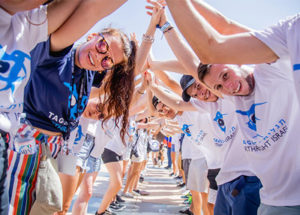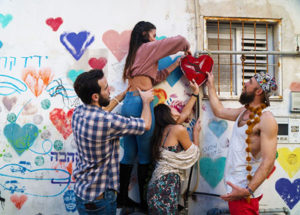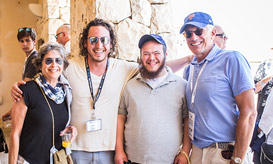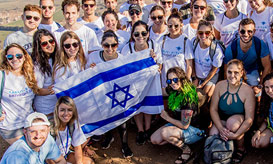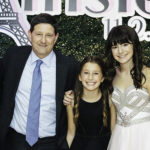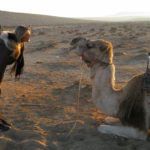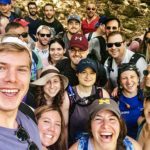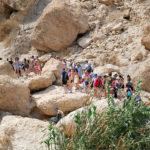Brian Shaw, member of Birthright Israel Foundation’s Chicago Leadership Cabinet, supports the program to combat misinformation…
As we embark on this month of Jewish holidays, starting a New Year of an ancient people, I am honored to share with you a few thoughts.
Our collective Jewish narrative arguably revolves around that seminal moment at Mt. Sinai, wherein a pulse of the divine merged with the human, infusing an eternal ethical backbone to govern mankind’s life on earth. This moment is acknowledged as G-d’s revelation to the entire community of Israel, a narrative that distinguishes the Jewish theological constitution from all others.
However, this dramatic communal revelation at Sinai — smoke, tremor and booming sounds from above — was not the only thing that happened that day, at least according to our ancient rabbis’ re-imagination of that moment. Midrash Rabbah discusses the enigmatic and profoundly intimate moment that features Moses and G-d in dialogue on top of Sinai, as the book of Exodus 19:19 states “Moses spoke, and G-d replied with a voice.” To the ensuing question “Why does the Torah say ‘G-d replied with a voice’ instead of simply saying ‘G-d replied,’” one rabbi now states: “G-d replied while using Moses’ own voice.”
So, what, or more precisely whom did Moses hear?
Indeed, we may learn that this dramatic and intimate moment of revelation did not feature a dialogue in the conventional sense of two parties engaged in conversation, but rather an “enriched monologue” — one based on Moses’ deep and illuminated awareness of man’s unique place in one’s relationship with both G-d and mankind.
This profoundly intimate moment is what we look for at Birthright Israel. “Revelation,” we maintain, does not necessarily have to appear in a booming voice from above to render it valid or worthy; rather, it may appear in a silent whisper of an awakened soul from within — the whisper of a kindled spirit which wanders in its search of wonder. Indeed, ours is a young generation who seeks meaning in life, much like over 50,000 young Jewish adults worldwide who made the conscious decision of joining one of our trips in search of wonder.
The 650,000 participants who have already experienced Birthright Israel in the past 18 years chose to do so as a way of awakening a spark, joining a story larger than themselves, connecting past, present and future, and – most importantly – finding a Jewish path of meaning and relevance. In so many ways, Birthright Israel has truly become their own moment of Jewish revelation – a small piece of Sinai.
Sinai, as we have come to understand, is not merely a physical mountain around which an entire community assembled, but also the mental backdrop of the individual seeker, whose inner quest compels a climb beyond one’s zone of comfort.
This formidable climb – when encouraged in safe and empowering manners – is indeed the mandate of Jewish education. Respectively, the Jewish mindset has always sought to infuse the perceptive with the active — to merge idea with deed.
This viewpoint is well articulated in our “Shema Yisrael” prayer, upon reciting “and you shall bind them as a sign on your hand {= deed}, and they shall be for frontlets between your eyes” {= idea}. Thus, our commitment to remembering Sinai “each generation anew” is not merely a mental charge, but also a commemorative one: we are called to remember our past in order to re-member our present — to actively rejoin the path of our nation’s unfolding and eternal story.
On behalf of the entire Birthright Israel and Birthright Israel Foundation family, I wish you Shana Tova and a meaningful holiday season.

